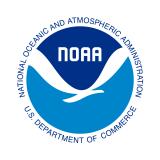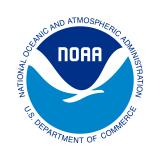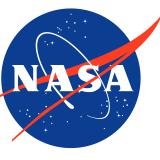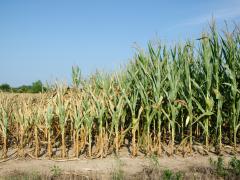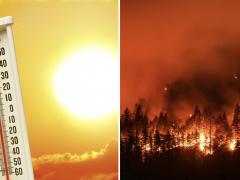NIDIS and NCEI Collaborate with NASA DEVELOP on Drought Early Warning in the Midwest
NASA DEVELOP addresses environmental and public policy issues through research projects that apply the lens of NASA Earth observations to community concerns. These projects provide students and recent graduates the opportunity to both engage in research and improve in the communication of their research.
NIDIS has been involved with the NASA DEVELOP program hosted at NOAA's National Centers for Environmental Information (NCEI) in Asheville, North Carolina since 2018. NIDIS supports drought-focused projects at the DEVELOP NCEI location each year, and our coordinators have been involved as partners in past projects, such as developing a composite moisture index, monitoring flash drought potential, and modeling soil drydown parameters.
This fall, the NASA DEVELOP NCEI team is working to create evapotranspiration and water balance climatologies for the Midwestern United States. These climatologies will help the region better determine the seasonal availability of water and monitor the evolution of drought conditions. The Midwest is the world’s most expansive region of corn and soybean production, and understanding the seasonal water variability of the region is vital for determining irrigation schedules, growing seasons, and general ecosystem health. To better understand regional climate and water budget trends, the team at NCEI will work with partners representing the USDA Midwest Climate Hub, Minnesota Department of Agriculture, Michigan State University, and NIDIS.
Additionally, NIDIS regional coordinator Molly Woloszyn has become the lead science advisor for NASA DEVELOP’s NCEI location, building on NIDIS’ role with the program. As the lead science advisor at NCEI, Molly will play an essential role in both the development and execution of the NCEI projects, help gather project ideas, connect to partners, and advise the NCEI fellow and participants.
NASA DEVELOP, part of NASA’s Applied Sciences’ Capacity Building Program, funds projects conducted in 10-week terms, three times a year (spring, summer, and fall), by students, recent graduates, and early career/transitioning career professionals under the guidance of science advisors. Projects explore the integration of NASA Earth observing-satellite data into partner organizations’ decision-making processes.
Stay tuned for more information on this project, and learn more about NIDIS-supported interdisciplinary research.


